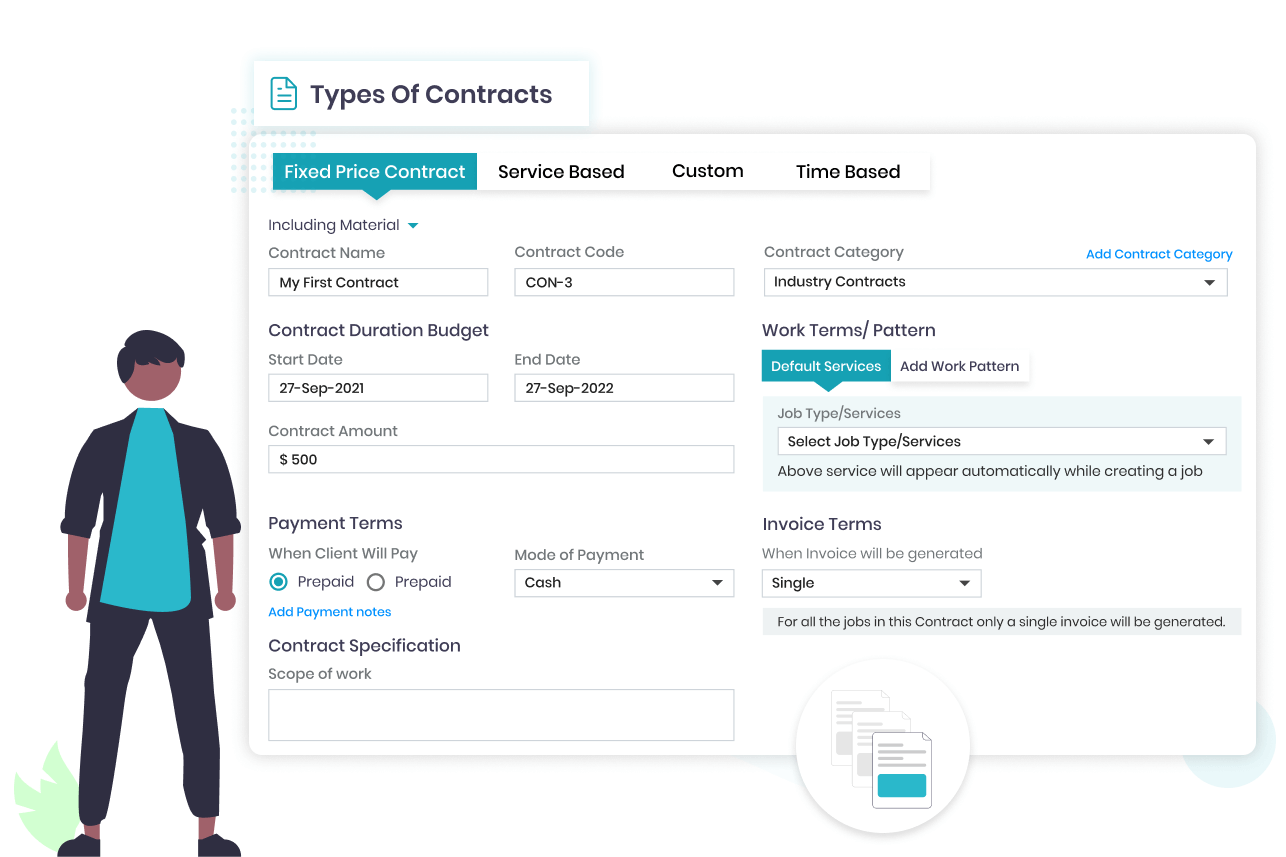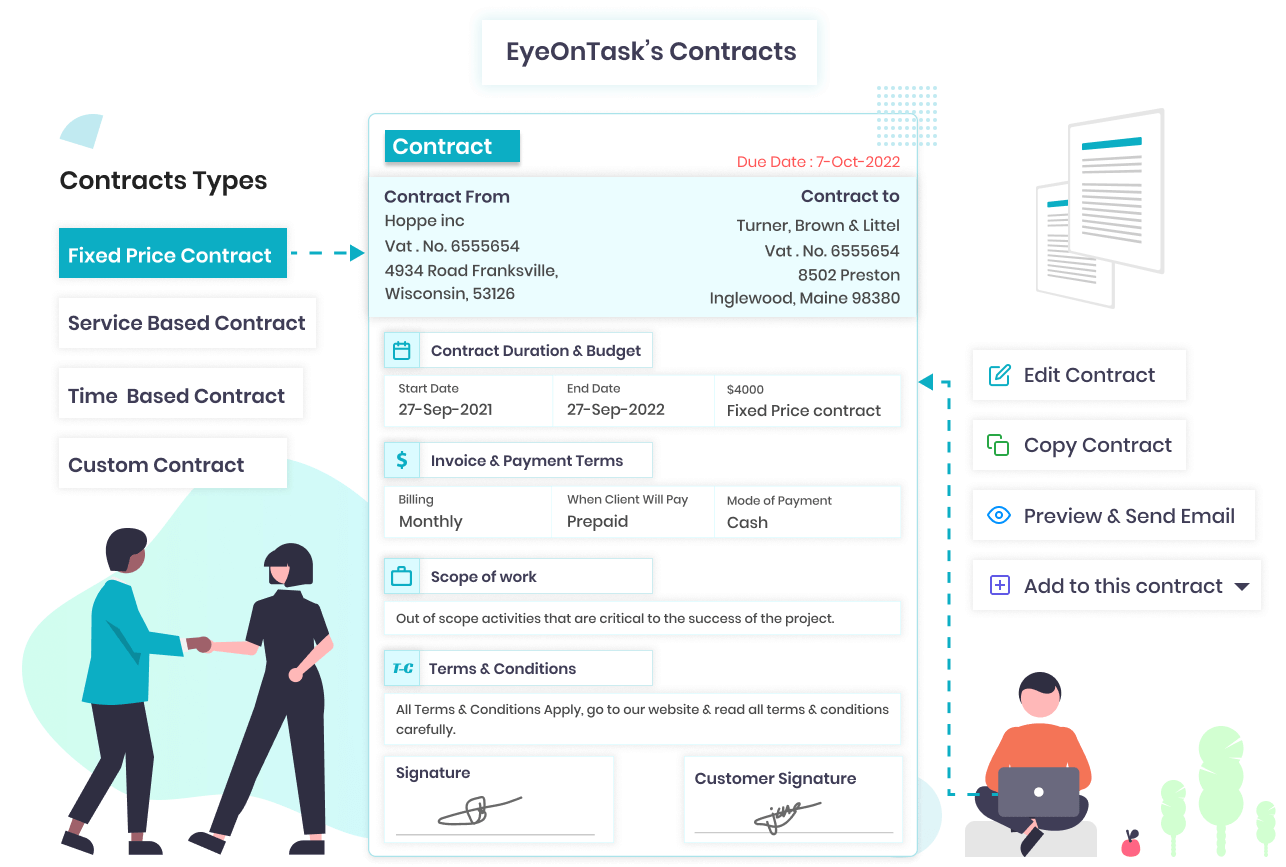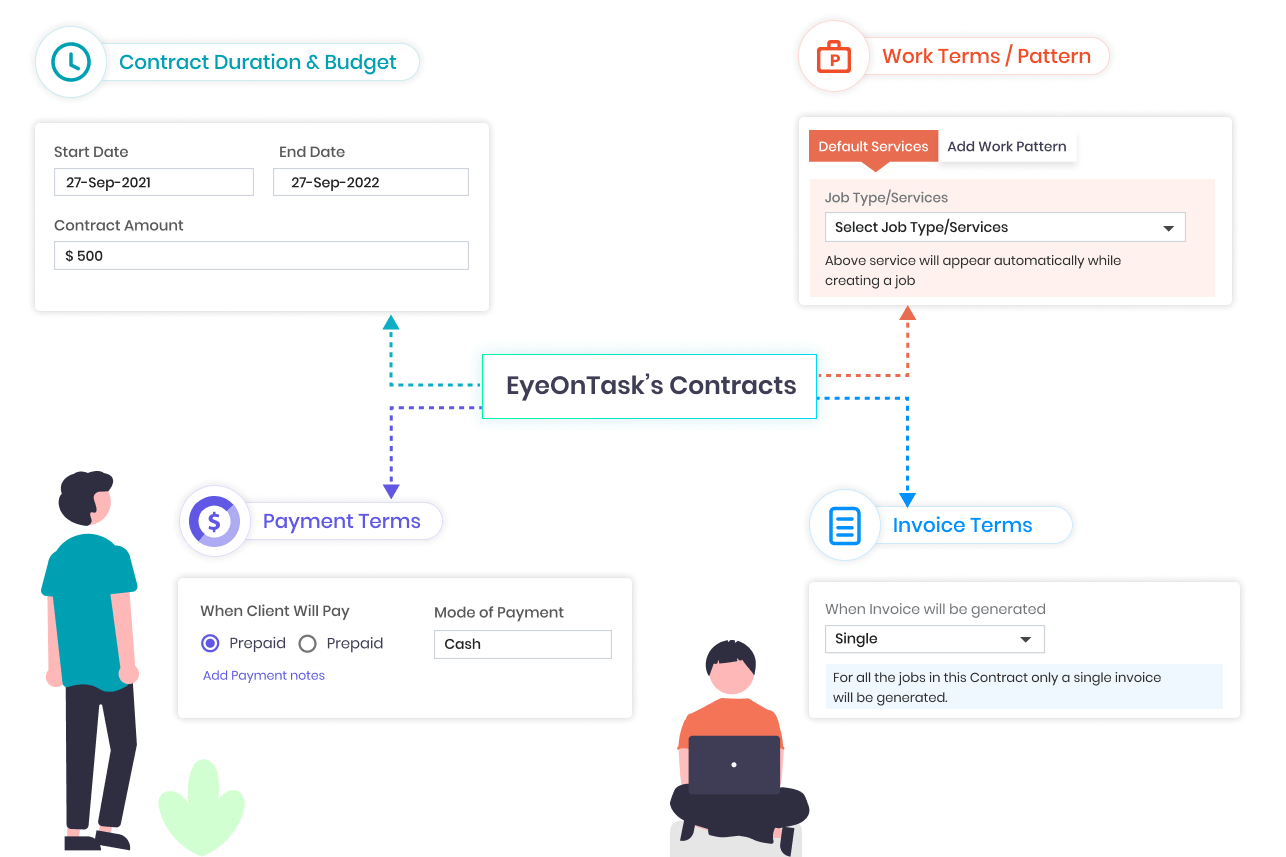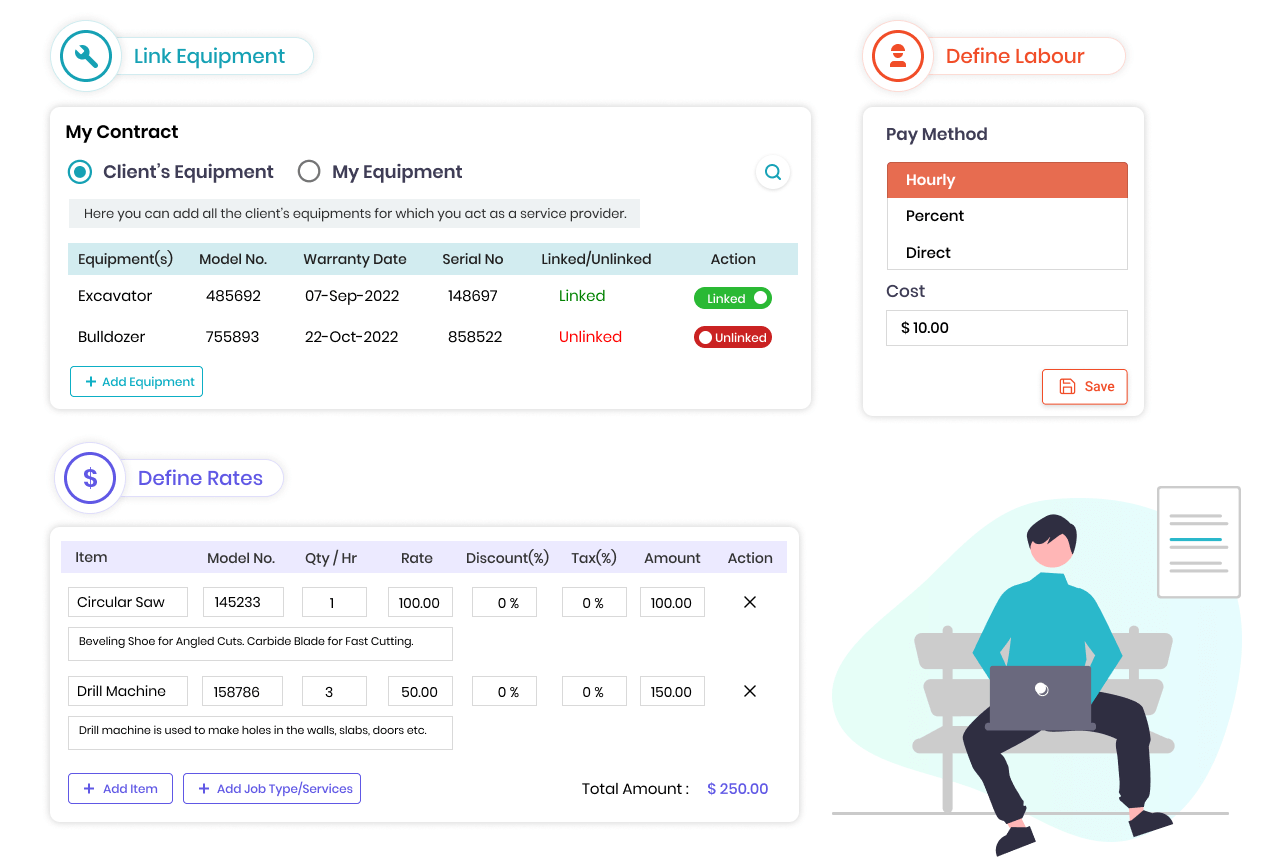



A contract is a legal agreement between two entities or individuals that protects both sides in a potential business transaction. There are various sorts of contracts, each defining the rights and responsibilities of both parties. A specific type of contract governs the contractor's risks and expenses.
Contract management is a type of administration that is frequently overlooked. Managers deal with employees regularly, and some of those conversations and circumstances naturally revolve around compensation. Contract management will be discussed in some of these discussions. Businesses must also manage contract agreements with other businesses at times. Contract management is an important business topic that is rarely discussed. It's critical to learn the fundamentals of contract management if you're unfamiliar with the procedure.
Contract management is the process of overseeing contract formulation, execution, and analysis to improve an organization's operational and financial performance while lowering financial risk. Organizations are under increased pressure to save costs and enhance their overall performance. Contract management is a time-consuming part of the business that necessitates the deployment of an effective and automated contract management system.

A Fixed-Price contract is also known as a lump-sum contract by many experts. When the scope of work is set, you use this contract. Once the contract is signed, the seller is contractually bound to complete the task within the agreed price and time. Therefore, the seller bears most of the risk. There is no price renegotiation unless the scope of work changes.
This contract structure is ideal for simple tasks with a well-defined scope. A fixed-price contract can make a lot of sense if the owner knows exactly what they want and the contractor has a precise set of designs to look over.
A service contract is an agreement between you or your business and the clients or customers you serve. This document outlines the terms and conditions of the services you will provide. Contractors, for example, would use a service agreement to lay out all of the modifications they're performing to a client's property and how they'll be paid. A service contract could also be used to engage single or multiple field workers on a temporary/hourly basis. The contract would outline the work they'll be doing for your organization and how you'll pay them.
It is evident by name that time-based contracts are only for a particular time. In time-based contracts, the worker is paid on an hourly basis according to their hourly rates. This sort of contract is great for projects where you want to hire field workers for a time period. This feature helps to keep a close eye on costs and manage the budget and the work so that you don’t overspend, this can be a really cost-effective way to add more field/remote workers to the team.
Custom Contracts are agreements between Service Provider and the Customer that pertain to Custom Work that Service Provider will execute during the Project or after the Project is completed in order to accomplish those tasks that the parties agreed in writing.
With EyeOnTask you can create any type of contracts such as Fixed-Price, Service-based and Custom Contracts by filling up some basic details like Contract Name, Contract category, Contract Duration & Budget, Work Terms/Pattern, Payment Terms, Contract Specification, Invoice Terms, etc.

Contract Duration & Budget : As it is clear by the name itself the Contract Duration & Budget feature is used for listing the project duration and budget for any type of contract including fixed price, custom contracts, and time-based. This feature gives a clear-cut look at the estimated budget and duration of the contract.
Payment Terms : Payment Terms enable users to define the payment process whether prepaid or postpaid. Also, users can choose options for modes of payment like cash, card, cheque, and online. This simplifies the payment process.
Work Terms/Pattern : This user-friendly functionality was created to add a certain job pattern. Here users can create work schedules for routine services. For example, you don't need to add a work or service every time that happens once, twice, or three times in a week, month, or year on a specific day or time. Else, you can set it once, as needed, and you're done.
Contract Category : It helps the user to categorize the contract. By naming it, users can easily find out the contracts and their details just in a second.
Invoice Terms : Invoice terms are used to select when an invoice needs to be generated. It depends on the nature of the contracts, such as whether they are fixed-price, service-based, or customized. There are mainly three invoice categories.

Link Equipment : This feature has eased down the work of the owner and service provider by linking equipment into the contracts. Users can easily search for their equipment by entering the Model Number and Serial Number. To link equipment, users need to enter details like Warranty Date, Serial Number Model Number, Serial Number, Linked/Unlinked (status), and Extra Fields.
Define Rates : It is used to define the rates of the particular equipment/item/services/labors used in field operations. Here the users can easily define the rates of the equipment/items/services/labors on an hourly basis so that if anyone is looking for any equipment for a very short period of time, they can easily get it.
Define Labor : You can quickly list the labor rate here on which you hire them. Here you can also define payment methods like whether you will pay them hourly, directly, or some percent of the particular job.
EyeOnTask is a distinctive platform that caters to users' demands and provides them with a platform that solves all of their queries. Your business operations can be made simpler by the software's endless potential.
To know more about EyeOnTask features, book a free demo.